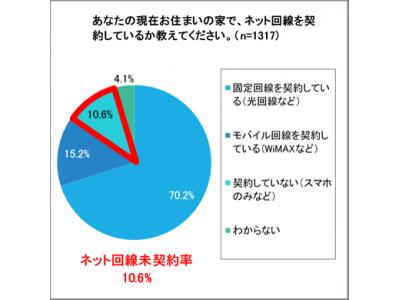Even after the birth of the web, one -third of the world is not connected to the Internet.
From "Web Father", raising issues and messages to the future.
March 12 was the 32nd birthday of World Wide Web (www).
It is imminable how much the world has been taken care of since Tim Burner -Lee created a web idea in CERN (European Nuclear Research Organization) in 1989.In particular, under the pandemic in the past year, the graceful of the web was recognized again.The web has completely changed the way of business, such as music, retail, publishing, travel, and transportation, but under Coronona, education has shifted greatly to online learning.
Originally a family student who had been able to connect to the Internet stably, studying continued even if he moved to online.But in areas where there is no reliable and affordable Internet access, students were the most disadvantageous of digital devices.The ISP and mobile carriers responded quickly in the early pandemic, exempt from data caps and excess rates, and showed an attitude to support an environment that is easy to study until the end of the grade.But not all telecommunications companies are trying to continue their support in 2021.
Only one -third of the world can use the Internet at home anytime
Burner's Lee and WEB Foundation Founder Rosemary Leases posted a joint blog post on the Web birthday.In the article, they point out that the Internet has not yet spread throughout the world, and praise the achievements of nine youth who contributed to the world's problem with the web.
"One -third of young people (in the world) do not have an Internet connection environment at all. More young people have the data, devices, and stable connections needed to make full use of the Web.This is a situation that cannot be entered. ""In fact, according to Unicef, only one -third of people under the age of 25 have Internet connections to their homes. 2.2 billion young people have been stable to support online learning under pandemic of other people.I can't access it. "

Certainly, UNICEF reports that only 33 % of children and young people have Internet connections at home.If you look at this by country, you can see the size of the digital device between nations.The percentage of people aged 0 to 25 could use the Internet at home was only 6 % in countries with a lot of income in a highly income country.
Young people who solve the world's issues on the web
Burner -Lee and Leasing also pointed out that if young people could use the Internet, they would be exposed to bullying, fake information, and other dangerous content.That may make you lose your intention to participate in the online community.In particular, those who are more likely to be harassed by race, religion, sexual orientation and disabilities, and gender.
"How many wonderful young people have fallen in the wrong direction of the digital device? How many future leaders have been erased by harmful Internet?"Burner -Lee and Lease say.Considering such various hurdles, the success of the nine people introduced in the article is almost a miracle.
For example, AVI SCHIFFMANN is NCOV2019 while in high school.LIVE has been launched to enable tracking the world's COVID-19 statistical data.He is another 2020Protests.COM and WHOTO.Vote has also been launched to track the BLM protests and the 2020 US presidential election.
Eight years ago, HERA HUSSAIN launched CHAYN, an activity that supports violence survivors for gender.To date, 380,000 people have supported the world, and 400 volunteers in 15 countries have participated in activities.
Ian Mangenga launches and operates the Digital Girl Africa to support women's digital literacy, and aims for women to be more powerful in the digital economy.
Nevertheless, these examples are only part of a case where young people around the world have changed into society using the Internet.
"The provision of Internet connection to all youth is enough in our reaches. Through funding to network infrastructure, subsidies, and support for community networks, we are all young people on the earth.You can deliver it. "Burner -Lee says.
ISP monopoly in the United States is an issue
In the United States, the ACCESSISIBLE, AFFORDABLE Internet for All Act, which aims to eliminate the digital device in Japan last week, was submitted to the House of Council.If this bill is passed, $ 80 billion (about 8).It costs 7 trillion yen, which allows you to lay a broadband infrastructure throughout the United States.This bill focuses on rural areas and cities that are not currently stable and affordable, aiming to realize the connection speed of up and down 100Mbps.Some members are working on the US News Committee (FCC) to make this "top and bottom 100 Mbps" a new definition of a high -speed broadband.
The problem in the United States is that major ISPs have monopolized the net connection between certain areas and cities.According to an Institute for Local Self-Reliance survey, there is only one broadband option for at least 83.3 million in the United States.COMCAST and Charter alone monopolize 47 million people.Other major ISPs offer old and unstable DSLs in the remote land.They share the territory like street gangs, but there is no economic incentive that enters a small market in rural areas.
"By giving billions of people to learn, work, and create tools, precedent investments in the future generations will bring a huge return in economic growth and social empowerment."Burner -Lee and Lease say.